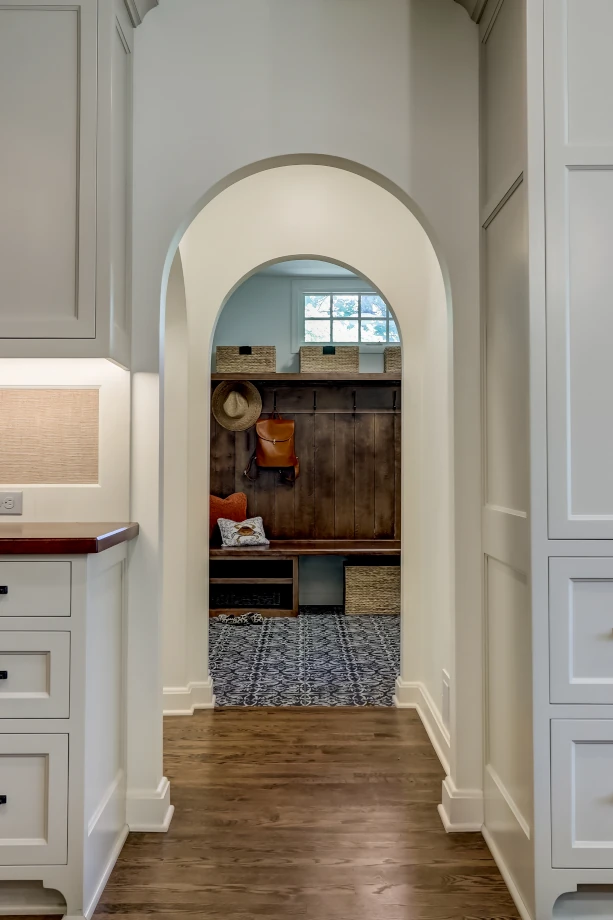As a condo owner, you enjoy most of the same freedoms as an owner of a traditional house. But when remodeling a condo, you may realize that certain parts of your home don’t belong to you.
Your homeowner’s association (HOA) may respect the privacy and autonomy of each condo and its occupants. But it also must ensure the integrity of the entire structure, for the benefit of all residents.
So some items within your unit—like plumbing and electrical systems—are shared among multiple units, and considered common property.
Remodeling a condo: Know what you can and cannot do
The first step to renovating a condo is understanding the rules established by your HOA. Following their guidelines—usually called Covenants, Conditions and Restrictions (CC&Rs)—is essential during any remodeling project.
In addition to structural integrity, HOAs are sensitive to one of the most common owner complaints: noise. Minimizing noise guides many HOA policies.
For example, you may want to replace old carpeting with nice, new hardwood or laminate flooring. It’s a popular upgrade for improving quality of life and increasing resale value. But you may also have to install insulated padding beneath the floor to deaden the clicking of your high heels.
As home improvement website The Spruce points out, some municipalities require permits for renovating a condo. For example, the City of Minneapolis requires a permit for condo owners to replace carpet with any kind of hard flooring.
Projects requiring HOA approval

When remodeling a condo, the following items are structurally significant for the entire building, so any alterations generally require HOA approval.
- Interior or exterior walls
- Structural floor
- Ceilings
- Columns
- Finish flooring
- Plumbing
- Electrical
- Aesthetic changes to the exterior
Projects not requiring HOA approval
Although you should always verify with your HOA, it is likely that the following items will not require approval.
- Interior painting
- Crown molding
- Replacing baseboards
- Replacing or repairing door and window casings
- Replacement of light fixtures, outlets, and switches
- Replacement of shower, bath, or sink fixtures
- New floors that are the same type as the old floor
- Built-in cabinets and new kitchen cabinets
The type of condominium you live in may influence what kind of updates you can make. If your home is considered a site condo, townhome, or planned unit development, you may have more freedom in renovating.
Some CC&Rs may require permits or formal approvals before any type of work can begin. If in doubt, find out!
Remodeling a condo: Know when and where you can do it
The CC&Rs may have specific guidelines for what days of the week and times of day renovation work can be done. Rules may also govern the hours during which materials can be delivered to the building. They may also specify certain entrances, elevators, and hallways.
Not checking on these logistical details in advance can cause massive headaches later when trying to schedule deliveries or appointments.
Measure first, move second
In addition to knowing which doors and elevators you can use, it’s important to measure their dimensions first. You don’t want to haul a large drywall panel to your condo’s elevator before you realize it doesn’t fit.
Stay in your neighbors’ good graces

Cultivate and maintain a good relationship with your neighbors before you begin your remodeling project. Asking them about their experience with remodeling may give you valuable insight while also building a rapport—and their trust.
That positive relationship may be valuable if the access panel for your bathtub’s plumbing is in your neighbor’s bedroom.
And even if the access panel is within your own condo, the plumber may need to shut off the water. Will that affect your neighbor’s water supply?
Remodeling a condo: Give yourself a long timeline
Given all the requirements your CC&Rs may have, and the time required to secure the approvals and permits, it’s important to have a flexible timeline. Carefully estimate how long you think everything will take—and then add at least two months.
Be flexible
Some owners enter a project with very specific ideas about the finished product. They may have their heart set on a particular fixture or a specific type of faucet.
However, being open to suggestions from experienced professionals—or a creative friend or neighbor—may guide your project in exciting, unexpected directions. A cost savings here may create a new opportunity there.
Also, if you’re planning extensive renovations, you may want to find a place for you and your family to stay during the process.
When to consider hiring a contractor
Even if you think you can renovate a condo yourself, the job presents some unique challenges that hiring a contractor can solve:
- Navigating your HOA’s regulations can be nerve-wracking. Let a professional contractor review your CC&Rs with you to ensure the renovations are within regulations.
- In a condo, the space is limited, finite, and shared. An experienced contractor specializes in maximizing space and working within the restrictions of multi-family housing.
- CC&Rs often limit renovation work to normal weekday business hours, to minimize noise on evenings and weekends. Rather than choose between your first-shift job and your renovation, you may want to hire a contractor instead.
When you’re ready to begin remodeling a condo, please contact us at LaBonte Construction.
We were voted Best of Milwaukee 2024 by Shepherd Express readers in the Home Remodeling, Basement/Rec Room Remodeler, Bathroom Remodeler, and Kitchen Remodeler categories.

